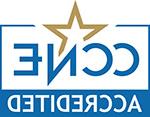Online Family Nurse Practitioner
Online Family Nurse Practitioner (MSN-FNP) Degree Programs
CTU’s Master of Science in Nursing-Family Nurse Practitioner (MSN-FNP) program is designed to help you advance your skills in this fast-paced field.
The program integrates a foundation of evidence-based practice, population health, policy, informatics and nursing theory with concentration courses in pathophysiology, pharmacology, and assessment. Students will receive hands-on instruction during weekend labs in Colorado at the start and end of the program.
For the eighth consecutive year, CTU’s online Master of Science in Nursing degree programs are ranked among the Best Online Master's in Nursing Programs by U.S. News and World Report.*
* CTU programs are ranked among U.S. News & World Report’s 2024 Best Online Programs.

Program Overview
The Family Nurse Practitioner (FNP) program helps the registered nurse prepare to become an Advanced Practice Registered Nurse capable of managing the health care of individuals across the lifespan by providing preventive and primary care, promoting optimal health and wellbeing, and management of chronic illnesses.
Nurse practitioners are involved in patient history taking, physical examination, diagnostic testing, diagnosis, and treatment. Nurse practitioners are educated at the graduate level, prepared to take the national certification exam, and then licensed by the state to practice at an advanced level.
The FNP program integrates a foundation of evidence-based practice, population health, health policy, informatics and nursing theory, with concentration courses in pathophysiology, pharmacology, and assessment, to help the student prepare for rigorous FNP didactic and clinical coursework. The program’s 630 direct-care clinical hours are designed to provide the student with the clinical experience needed to develop in their new role and deliver primary care for families. Combining didactic coursework with direct care clinical experience, students study how to manage care that is interdisciplinary, collaborative and culturally appropriate as well as provide primary care to diverse, underserved, and vulnerable populations across the lifespan.
FNPs work independently as well as collaboratively with other clinicians and health care and social service professionals in a variety of settings, such as clinics, schools, hospitals, homes, workplaces and community-based organizations.
The MSN-FNP prepares nurses for advanced licensure and to sit for the national certification exam. Certification exam applicants may be denied exam eligibility based on a past criminal record.
College of Nursing Mission Statement
Through an innovative curriculum and student-centered teaching, the nursing faculty teaches, supports, and inspires students to become competent, caring, and accountable professionals who serve a diverse client population within a dynamic health care environment.
MSN Program Goals
- Employ leadership skills to improve the quality of care in a variety of healthcare settings.
- Integrate advanced nursing and science knowledge into practice.
The Master of Science in Nursing degree program at Colorado Technical University is accredited by the Commission on Collegiate Nursing Education (http://www.ccneaccreditation.org)
Estimate your costs, potential savings and graduation date
Courses
| Courses - Core | Credits | |
|---|---|---|
| NRSG612 | Integrating Theory and Research for Evidence-Based Practice | 4 |
| NRSG615 | Healthcare Informatics and Technologies | 4 |
| NRSG617 | Policy and Politics in Nursing and Healthcare | 4 |
| NRSG625 | Promoting and Preserving Health in a Diverse Society | 4 |
| Total Credit Hours: | 16 | |
| Courses - Concentration | Credits | |
|---|---|---|
| NRSG650 | Advanced Pathophysiology for the Nurse Practitioner | 4 |
| NRSG651 | Advanced Pharmacology for the Nurse Practitioner | 6 |
| NRSG652 | Advanced Physical Assessment for the Nurse Practitioner | 4 |
| NRSG653 | Advanced Physical Assessment for the Nurse Practitioner Lab | 2 |
| NRSG654 | Role of the Nurse Practitioner | 3 |
| NRSG655 | FNPI Advanced Nursing Practice: Care of the adult, geriatric and frail elderly | 6 |
| NRSG656 | FNPII Advanced Nursing Practice: Women’s Health | 2 |
| NRSG657 | FNPIII Advanced Nursing Practice: Pediatrics | 2 |
| NRSG660 | FNPI Practicum: Advanced nursing care of the adult, geriatric and women patients | 8 |
| NRSG661 | FNPII Practicum: Advanced nursing care of the pediatric patient | 6 |
| NRSG662 | FNPIII Practicum: Advanced nursing care across the lifespan | 7 |
| NRSG663 | FNPIII Advanced nursing care across the lifespan, Lab | 2 |
| Total Credit Hours: | 52 | |
Total Credit Hours: 68
Learning Outcomes
MSN Program Outcomes:
- Synthesize knowledge from nursing and a variety of sciences in diverse settings for the purpose of improving nursing care.
- Apply organizational and systems leadership concepts to promote quality patient care.
- Evaluate performance improvement processes designed for the purpose of providing quality patient care.
- Apply research outcomes and evidence-based practice to recommendations for improved patient care.
- Synthesize health policy processes established for the advocacy of quality healthcare.
- Integrate interprofessional collaboration to the management of patient and population health outcomes.
- Apply organizational, client-centered, and culturally appropriate concepts to clinical prevention and population care to identified populations.
MSN – Family Nurse Practitioner concentration outcomes:
- Integrate technology in patient care management to improve health outcomes.
- Operate as an independent practitioner in the management of healthcare for patients across the lifespan.
- Formulate ethical plans of care which incorporate knowledge from current research, clinical guidelines, practice and assessment to improve health outcomes.
- Employ complex and advanced leadership skills in guiding change to improve health outcomes.
Faculty

Dr. Rose Nieves
University DeanDr. Rose Nieves is the Dean of the College of Nursing for Colorado Technical University. In this role, she leverages her vast experience as a nursing leader, educator and healthcare provider to help assess, mold, develop and direct the College of Nursing.

Dr. Kelly White
Executive Program DirectorDr. Kelly White is the Executive Program Director of Nursing and Health Studies at Colorado Technical University. With more than 25 years of experience in nursing education and leadership, she has actively participated in the changing needs of nursing students, faculty and in the transforming healthcare arena.
For more faculty profiles please visit our Leadership and Faculty page.
For more information visit the College of Nursing.
Admission Requirements
Admission Requirements
Admission to this program requires an unencumbered license to practice as a Registered Nurse (RN) in the United States. All students must maintain this licensure throughout the program of study.
Students must have graduated with a Bachelor of Science in Nursing (BSN) degree from an institutionally accredited institution. A cumulative grade point average (CGPA) of 3.0 for the last 90 quarter (60 semester) hours of study undertaken for full acceptance into the program.
Prior to starting the nursing program all applicants must submit an unofficial or official copy of college transcript from their BSN degree for review. Applicants to the Master of Science in Nursing degree program who meet all general admission requirements, but who have a CGPA for the BSN degree between 2.75 to 2.99 for the last 90 quarter (60 semester) hours of study, may be granted provisional admission. Students must successfully complete their first two MSN courses with a minimum of 3.0 GPA to be granted full admission to the nursing program or be administratively withdrawn.
Students must have a minimum of one year of recent direct care nursing experience prior to admission to the program.
Provide a current resume.
CTU has made a determination that this curriculum meets the state educational requirements for licensure or certification in the following states: Arkansas, Colorado, Connecticut, Florida, Georgia, Hawaii, Idaho, Illinois, Indiana, Iowa, Kansas, Kentucky, Maine, Maryland, Michigan, Mississippi, Missouri, Montana, Nebraska, Nevada, New Jersey, New Mexico, North Carolina, Ohio, Oklahoma, Pennsylvania, Rhode Island, South Carolina, Texas, Utah, Vermont, Virginia, Wisconsin, and Wyoming.
CTU has made a determination that this curriculum does not meet the state educational requirements for licensure or certification in the following states: Alabama, Alaska, Arizona, California, Delaware, Louisiana, Massachusetts, Minnesota, New Hampshire, New York, North Dakota, Oregon, South Dakota, Tennessee, Washington, and West Virginia.
This information is subject to change; CTU will update these lists as information becomes available.
Resources
Related Degrees
Compare up to three additional degrees
FAQs
This MSN degree program is offered online and starts every 5 weeks. For more information, you can speak to an Admissions Advisor over the phone (1-855-230-0555) or request it online. Once you’ve completed the online request, you can expect to hear from an advisor within 24 hours to answer any questions you may have and to discuss the next steps toward starting your degree program.
This Master of Science in Nursing (MSN) degree program is comprised of 68 credit hours. Candidates may be eligible for transfer credit, which is evaluated on an individual basis. Not all credits are eligible for transfer. See the University Catalog for transfer credit policies.
At CTU, our nursing courses are built around our proprietary Intellipath® learning system, an adaptive learning technology that recognizes what candidates already know, anticipates what they’re ready to learn, and tailors the course materials accordingly so they can move quickly over the content they already know.
We provide registered nurses the flexibility to attend classes while working with 100% online courses and access to our handy mobile app. There is no waitlist, no GMAT/GRE, and MSN-FNP candidates may qualify to sit for the national Family Nurse Practitioner certification exam upon program completion.
Yes, The Bachelor of Science in Nursing degree, Master of Science in Nursing degree, Post Graduate APRN Certificate – Family Nurse Practitioner, and Doctor of Nursing Practice degree programs at Colorado Technical University are accredited by the Commission on Collegiate Nursing Education (http://www.ccneaccreditation.org).
Nursing students receive support from the Clinical Coordinator to identify practicum sites within their community. The FNP nursing student is required to complete 630 direct-care clinical hours. NRSG660: FNPI takes place at a clinical site that serves the adult, geriatrics and women populations. NRSG661: FNPII takes place at a practicum site that serves the pediatric population. NRSG662: FNPIII takes place at a practicum site that serves patients across the lifespan.
Information about the practicum can be found in the Nursing Learning Center where the Family Nurse Practitioner Handbook (MSN & PGC) is located. The Clinical Coordinator also partners with nursing students to assist with practicum placements. Nursing students must disclose if they are requesting to do their practicum with their employer. Nursing students may not complete practicum hours in their current department or with in-line supervisors.
To speak with an advisor, request information here.
The structure of the FNP nursing program is designed to allow the working nurse to advance in his/her MSN degree while continuing to work within the community. With an asynchronous (any time of day) classroom format, this allows nursing students to formulate a study schedule that can be incorporated into their professional life. Instructors also provide synchronous chats to support varied adult learning needs. The Family Nurse Practitioner concentration requires rigorous study and strong time management skills with dedicated daily reading and study time.
FNP nursing students are required to visit our Colorado campus in Denver, Colorado for two intensives or labs. The first intensive weekend is required before the practicum courses to ensure students are prepared for safe patient interactions. Hands-on instruction is also provided during the intensive. The second intensive weekend is required before completion of the FNP program to help ensure students are prepared to act as independent practitioners before sitting for certification exams.
The College of Nursing has resources built into the program that assist students in preparing for the Family Nurse Practitioner certification exam. The 3P exam which students take in NRSG653 Advanced Physical Assessment for the Nurse Practitioner Lab, is used to assess students’ synthesis of learning from the advanced pathophysiology, advanced pharmacology and advanced physical assessment courses. CTU also provides APEA (Advanced Practice Education Associates) resources such as MyQBank with hundreds of review questions, a pre and post-predictor exam, along with a certification review course during the final practicum. Students also receive access to the UpToDate database to retrieve the latest clinical evidence to support their practice.
What Students Are Saying About Their CTU Experience
It's been a personal goal of mine to further my skills and advance in my career. CTU offered the flexibility and structure that worked with my current job and family life.
Jeniffer H., Former Student 2022 Graduate, Master of Science in Nursing
The most rewarding part of earning my degree is the development of thought, communication, and behavior. I have noticed a change in how I care for patients which is more refined.
Leigh F., Former Student 2023 Graduate, Master of Science in Nursing
CTU offered convenient online education that fit into my full-time work schedule.
JuliAnne M., Former Student 2023 Graduate, Master of Science in Nursing
